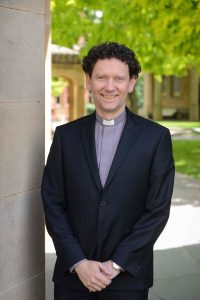 I wrote last time about how much Jesus valued the character strength of humility. The only people he ever really got angry with were those who showed a complete lack of humility and excluded others. Humility is a quality which is closely linked with kindness and generosity. You have to be humble to be kind, I think.
I wrote last time about how much Jesus valued the character strength of humility. The only people he ever really got angry with were those who showed a complete lack of humility and excluded others. Humility is a quality which is closely linked with kindness and generosity. You have to be humble to be kind, I think.
One of the ways Jesus taught about humility and kindness was not only in what he said, but also in what he did. After all, there is no point in teaching about being kind and generous to others, if you’re not prepared to do so yourself. The story about Zacchaeus from Luke’s Gospel (Luke 19: 1–10) is a classic example of this. It is a slightly comical story. Jesus is passing through the city of Jericho and a chief tax collector named Zacchaeus is keen to see him, but because he is short and can’t see over the crowds, he decides to run ahead and climb a tree. So we have this comical picture of the wealthy tax collector, who is a short little man, running ahead of the crowds around Jesus and climbing a tree.
It’s mildly amusing, but it’s also incredibly revealing. Wealthy, established figures like a chief tax collector for the Romans would not normally run. We forget this, especially at a school where we prize athleticism and much of our sport is based on running, but wealthy people in the ancient world did not run and they certainly didn’t climb trees! To put that in context, have you ever seen pictures of the Queen running? There’s one, that I know of, when Prince William was really young and the Queen was holding his hand. It is the same kind of situation with this wealthy tax collector: he would not normally run! Yet, such is his desire to see Jesus, that he takes off ahead of the crowd and climbs a tree.
It’s interesting to speculate about Zacchaeus. Why was he so keen to see Jesus, so much so that he abandoned his usual behaviour and sprinted ahead of the crowd? Perhaps he sensed that here was someone who might accept him. Remember, tax collectors were seen as traitors by the Jewish people. Often they accepted bribes and lined their own pockets, so they were disliked for that reason, but even worse, they collected taxes for the Roman Empire: the foreign power that ruled over Israel in the time of Jesus. No-one liked them. They were the outcast, both socially and also in a religious sense. I’m not even sure we have an equivalent in today’s society. The tax collectors were not welcome in polite company. They were despised. Perhaps Zacchaeus sensed that Jesus was somehow different from the rest. So, he rushes ahead to catch a glimpse of him.
Jesus does not disappoint him. He greets Zacchaeus and says, “Zacchaeus, hurry and come down, for I must stay at your house today.” We might think, “That’s bit cheeky, inviting yourself to dinner, Jesus!” But, in fact, it was the height of respect. Going to someone’s house for lunch or dinner was a great honour, both for the host and the guest. You simply didn’t associate with someone in their home unless you respected them. The other people who witnessed this began to complain, because Jesus was associating with this outcast.
Jesus models kindness and it is in response to his kindness that Zacchaeus offers to give half his money to the poor and to pay back anyone he has defrauded, offering four times the amount. It is response to Jesus’ kindness that Zacchaeus begins to change his life.
Kindness is a quality underrated in our society. It was such a joy to see it listed as one of the 24 character strengths when I was first introduced to the character strengths several years ago. We could all do with more kindness in our lives. In the 24 character strengths it comes under the overriding virtue of love. Kindness, or generosity as it is sometimes named, is intimately connected with love. We need more of it in our society. It is sadly lacking in the wider world: the world is short on kindness at times.
As my favourite teacher, Professor Dumbledore, says to Harry Potter, “Just like your mother, you’re unfailingly kind. A trait people never fail to undervalue, I’m afraid.”
The Reverend Dr Theo McCall
School Chaplain
